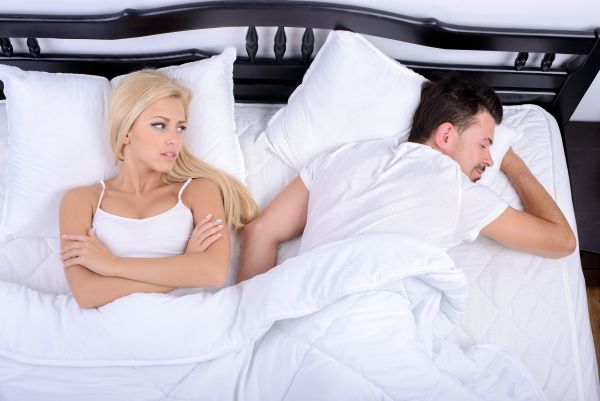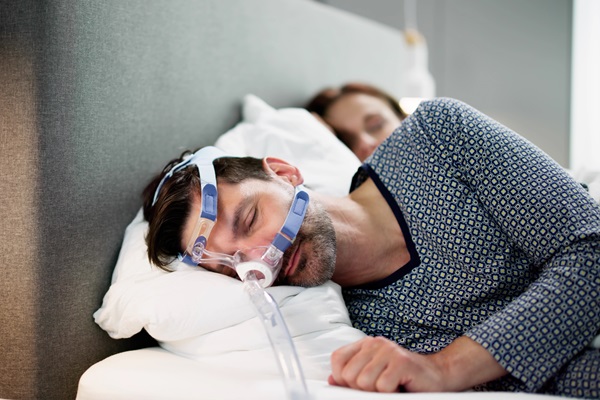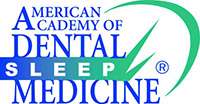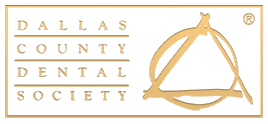Alternative Sleep Apnea Treatments

For many people, especially those with sleep apnea, getting a good night’s sleep is a major challenge. The most common solution is the continuous positive airway pressure (CPAP) device. However, the CPAP machine is not effective for every patient. Some may also find wearing a mask over their mouth and nose intrusive and bulky. Fortunately, there are alternative sleep apnea treatments to consider.
Sleep apnea treatment options
The following are some of the alternative treatments to consider for sleep apnea:
Basic lifestyle changes
There are several lifestyle changes people can make to reduce snoring and other sleep apnea symptoms. Lifestyle adjustments, such as staying off alcohol and quitting smoking, may help with sleep apnea. Alcohol relaxes the throat muscles, which may lead to snoring and collapse of the airway. Patients who have allergies can consider using a decongestant before sleeping at night to improve airflow through the nose.
Oral appliances
For sleep apnea treatment, a dentist can provide oral appliances, such as mouthguards. These mouthguards can shift the lower jaw slightly forward and hold the tongue to keep the air passages open. The devices prevent the airway from collapsing so that the patient can breathe easily while sleeping. They are often recommended for people with mild to moderate sleep apnea who cannot use CPAP. A sleep technologist calibrates the oral appliance, and the dental professional with training in sleep medicine fits the device.
Oral surgery
Sometimes, genetics can contribute to sleep apnea. People born with naturally big tonsils or additional tissue in their throat may have breathing difficulties while sleeping. Other problems may be related to the tongue, soft palate or jaw. Oral surgery can be done on the patient to change their anatomy permanently and help them breathe easily.
Positional therapy
People who sleep on their stomach or on their side are less prone to experiencing sleep apnea. Those who sleep on their back, however, are more likely to experience issues when sleeping. Some devices attach to the back or waist to prevent the patient from lying on their back and may remove the need for a CPAP device. Positional therapy involves using behavioral methods to treat sleep apnea caused by sleeping positions. Some patients report better sleep when they sleep on their side.
Weight loss
Obesity is one of the main risk factors of sleep apnea. Studies reveal that losing only 10 percent of body weight can reduce sleep apnea symptoms. Shedding additional pounds may even resolve the problem completely, in some cases. Overweight people tend to have thick necks with surplus tissue in their throat, which may inhibit the free flow of air. This treatment option will probably not be effective for people with a narrow nasal or air passage.
The dentist may recommend Cognitive Behavioral Therapy for patients who have issues complying with the treatment plan or cannot sleep properly despite treatment. A behavioral sleep medicine professional can help them deal with thoughts and behavior that may be hindering them from getting good sleep or staying compliant with treatment.
Final note
For sleep apnea patients, getting a good night’s sleep is paramount for healthy living. Those who cannot get a CPAP machine can consider alternative treatments to get a better sleep routine.
Request an appointment here: https://stonecanyondental.com or call Stone Canyon Dental at (972) 996-3191 for an appointment in our Sunnyvale office.
Check out what others are saying about our services on Yelp: Read our Yelp reviews.
Recent Posts
Sleep apnea treatments can significantly improve energy, focus, and general well-being. Dentists strive to help patients experience substantial relief and improved sleep through tailored treatment solutions. From comfortable oral appliances to collaborative care plans, these dental providers take a proactive approach to helping you get better rest.Sleep apnea is a common condition that disrupts breathing…
A dental bridge is a restorative treatment that fills the gap left by a missing tooth. These restorations feel similar to natural teeth and prevent additional oral health issues from arising due to gaps in the smile. Qualifying for dental bridges is also easy. Most patients find they qualify, and if they do not, they…
A healthy, complete smile is not only about looking good but is also important for your overall well-being. Dental bridges can help restore the appearance and function of your teeth. However, common misconceptions about these replacement options can prevent people from understanding their benefits. Let us debunk some common myths about dental bridges.While dental bridges…
When a dental emergency hits, it is important to know where to go to access the right care. An emergency dentist is often the right provider, although life-threatening emergencies require a trip to the emergency room. Learning when to go to the emergency dentist versus the emergency room can save you time, money, and discomfort.…







